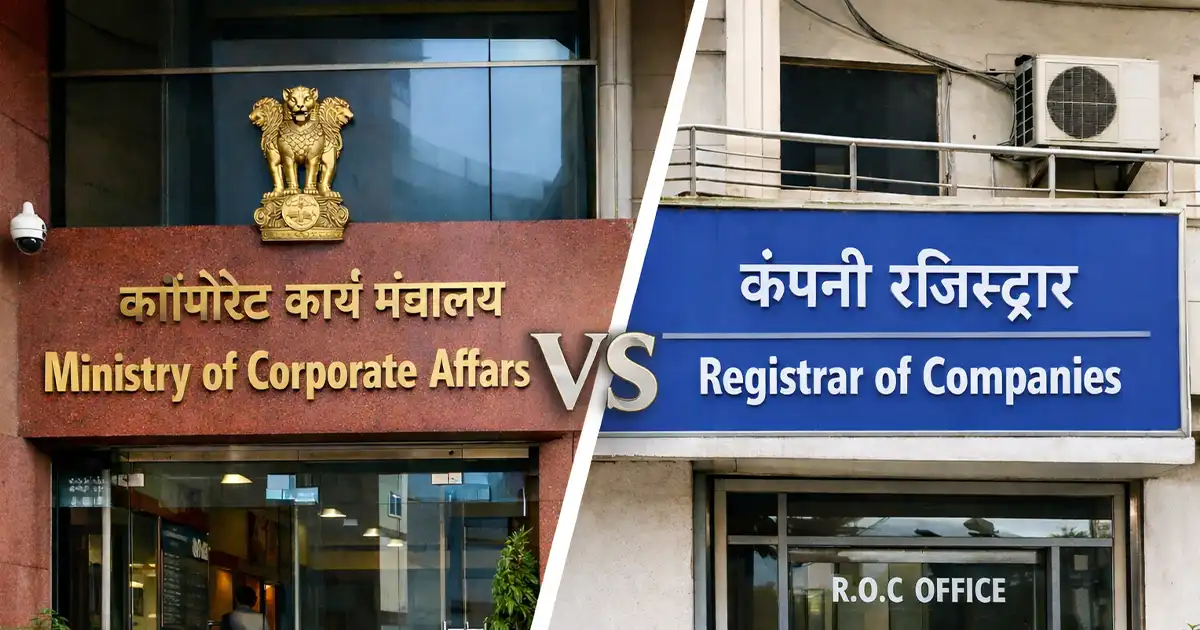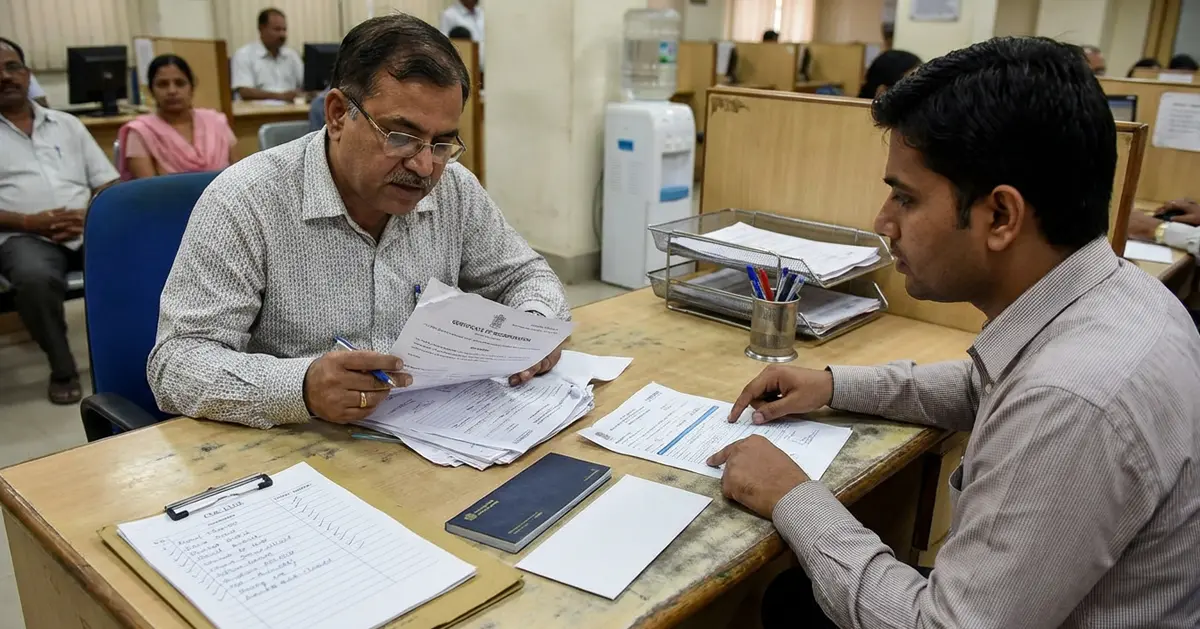
Who Can Apply for Startup India Registration? Eligibility Explained
A startup is a business that is innovative, scalable, and growth-oriented, often creating new products, services, or processes that generate value or employment. However, not every new business can register under Startup India. The Startup India registration eligibility ensures that only genuine startups can access government benefits such as tax exemptions, funding, and regulatory support.
To be eligible for DPIIT registration, a startup must:
- Be incorporated as a Private Limited Company, LLP, or Partnership Firm.
- Be less than 10 years old from the date of incorporation.
- Have an annual turnover under ₹100 crore in any financial year.
- Focus on innovation, development, or improvement of products or services.
- Not formed by splitting, restructuring, or rebranding an existing company.
Meeting these criteria allows startups to enjoy advantages such as tax holidays under Section 80-IAC, angel tax exemption, fast-track IPR support, and priority in government tenders. In short, understanding the Startup India registration eligibility is the first step for gaining credibility, government backing, and a competitive edge in India’s entrepreneurial ecosystem.
What is the Legal Basis for Startup India Registration?
The Startup India Recognition scheme is backed by formal legal guidelines from the Government of India, ensuring that startups are clearly defined and eligible for benefits. Recognition by DPIIT is not just symbolic; it has a legal foundation that guarantees access to tax exemptions, funding, and regulatory relaxations.
The primary legal basis is G.S.R. 127(E) Notification, issued on 19th February 2019, which consolidates and revises earlier notifications (G.S.R. 364(E) dated 11th April 2018 and G.S.R. 34(E) dated 16th January 2019). This notification lays down the definition of a startup, eligibility criteria, and the recognition process under the Startup India initiative.
Key Elements of the Legal Framework
This section explains the core components of the DPIIT legal framework that determine which startups can apply for recognition.
- Definition of a Startup: A startup must be a Private Limited Company, LLP, or Partnership Firm incorporated in India. It should focus on innovation, development, or improvement of products, services, or processes, or have a scalable business model with potential for wealth creation and job generation. Importantly, startups formed by splitting or restructuring existing businesses are not eligible.
- Eligibility Criteria: Startups must be less than 10 years old from the date of incorporation and have an annual turnover not exceeding ₹100 crore in any financial year. These criteria ensure that the benefits reach genuine, growth-oriented startups rather than established companies.
A more detailed account of the eligibility conditions is provided below in the article.
- Benefits and Recognition Process: Recognized startups gain tax exemptions under Section 80-IAC, angel tax relief, intellectual property support, and priority in government tenders. Applications are submitted through the National Single Window System (NSWS) (nsws.gov.in), where DPIIT evaluates eligibility and grants recognition.
Recent Updates and Where to Access Official Documents
Keeping track of updates and official notifications ensures that startups stay compliant and informed about the recognition process.
- The G.S.R. 127(E) Notification (2019) is the current authoritative legal document, replacing previous notifications.
- The Revised Guidelines for Recognition of Startups (2019) provide step-by-step instructions on applying, maintaining eligibility, and interpreting the benefits.
- Official documents can be accessed here:
These resources serve as the legal anchor for Startup India recognition, helping startups understand eligibility, compliance requirements, and how to access government-backed incentives.
Core Eligibility Criteria for Startup India Registration
To be recognized under Startup India (DPIIT Recognition), a startup must satisfy a set of core eligibility criteria. Below is a detailed breakdown of each criterion.
1. Eligible Business Structures
The startup must be legally registered in India as one of the following:
- Private Limited Company (under Companies Act, 2013)
- Limited Liability Partnership (LLP) (under LLP Act, 2008)
- Registered Partnership Firm (under Partnership Act, 1932)
Rationale: Formal business structures ensure legal recognition, compliance with Indian corporate laws, and the ability to enter into contracts, receive investments, and claim government benefits.
Common Pitfalls:
- Attempting to register a startup as a sole proprietorship or unregistered entity.
- Using foreign-incorporated entities to claim recognition.
Notes / Fine Print:
- Joint ventures or subsidiaries may qualify if they independently meet all other criteria.
- Holding companies, investment firms, or passive entities without a product/service focus are not eligible.
2. Age of the Startup
The startup must be less than 10 years old from the date of incorporation or registration. For certain biotech or research-focused startups, this limit may extend to 12 years.
Rationale: This criterion ensures that benefits target early-stage companies that require support during their formative years rather than established businesses.
Common Pitfalls:
- Counting the ideal conception date instead of the official incorporation date.
- Applying after the 10-year (or biotech-adjusted) limit.
Notes / Fine Print:
- Extensions for biotech startups or startups in priority sectors are possible under DPIIT’s revised guidelines.
- The startup’s age is assessed on the date of application, not at the time of project initiation.
3. Annual Turnover Limit
The startup must have an annual turnover not exceeding ₹100 crore in any financial year since incorporation.
Rationale: This ensures that incentives are provided to businesses in their growth phase rather than large, established enterprises.
Common Pitfalls:
- Misreporting revenue or ignoring consolidated turnover from group entities.
- Surpassing the ₹100 crore limit, which can lead to the revocation of recognition.
Notes / Fine Print:
- Grants, research funding, or non-operating income are sometimes treated separately; refer to DPIIT guidelines.
- Foreign subsidiaries’ revenue may be included for turnover assessment.
4. Innovation and Scalability
The startup should be working on innovative products, processes, or services, or have a scalable business model with high potential for employment generation or wealth creation.
Rationale: This ensures that government support fosters innovation and businesses that can contribute significantly to the economy.
Common Pitfalls:
- Classifying a generic trading or service business as innovative.
- Submitting applications without evidence of scalability or market impact.
Notes / Fine Print:
- Startups in biotech, deep tech, or niche research areas may require supporting documents to prove innovation.
- Traditional businesses without clear differentiation or technological advancement are usually excluded.
5. Original Entity Formation
The startup must not be formed by splitting, reconstructing, or rebranding an existing business.
Rationale: This ensures that benefits are directed toward genuinely new ventures rather than businesses attempting to access incentives through restructuring.
Common Pitfalls: Attempting recognition for a demerged or spun-off entity without sufficient independent innovation.
Notes / Fine Print:
- Holding companies or subsidiaries can qualify if they meet all other criteria independently.
- Foreign-incorporated entities cannot apply for DPIIT recognition. However, foreign shareholding is allowed as long as the entity is incorporated in India.
What are the Additional Conditions for Startup India Registration Eligibility?
In addition to core eligibility criteria, DPIIT-recognized startups must comply with certain additional conditions to maintain their status and fully benefit from the Startup India initiative. These include rules related to share capital, funding, sector-specific relaxations, and the consequences of exceeding turnover or age limits.
1. Limits on Paid-up Share Capital and Share Premium
Startups must maintain certain limits on paid-up share capital and share premium to qualify for tax exemptions, including angel tax relief. There is no prescribed limit on paid-up share capital for Startup India recognition; only turnover and incorporation age matter. However, these limits become relevant when claiming exemption under Section 56(2)(viib) (Angel Tax).
Tax Exemption under Section 80-IAC
- Eligibility: Startups incorporated on or after 1st April 2016 can apply for income tax exemption under Section 80-IAC of the Income Tax Act.
- Duration: Recognized startups can avail of a 100% tax deduction for three consecutive years within the first ten years of incorporation.
- Conditions:
- Submit a duly signed declaration in Form 2 to DPIIT.
- Confirm that the startup is not formed by splitting or reconstructing an existing business, except as allowed under Section 33B of the Income Tax Act.
- Ensure the startup has not been formed by the transfer of previously used machinery or plant.
- Submit audited financial statements and income tax returns as applicable.
- Submit a duly signed declaration in Form 2 to DPIIT.
Exemption under Section 56(2)(viib)
- Eligibility: DPIIT-recognized startups can claim exemption from Section 56(2)(viib) of the Income Tax Act if shares are issued to resident investors
- Conditions: Submit a declaration in Form 2 to DPIIT on the Startup India Portal (startupindia.gov.in).
- Additional Point: As of Budget 2023, non-resident investors from certain countries are also exempt from angel tax, but only if notified by the government (e.g., USA, UK, France, Singapore, etc.).
2. Conditions Around Funding
The type and source of funding received by a startup can affect eligibility for certain benefits, including angel tax exemptions.
Impact on Eligibility
- Funding must come from registered angel funds, SEBI-registered venture capital funds, or domestic investors.
- Submit a declaration in Form 2 to DPIIT to claim exemptions under Section 56(2)(viib).
Funding Sources
- Eligible: Angel investors, venture capital firms, and government-backed funds.
- Ineligible: Foreign investors or unregistered entities may not be eligible for exemptions.
3. Sectoral Special Rules
Certain sectors have special provisions or relaxations to encourage innovation and entrepreneurship.
Manufacturing Sector
- Startups in manufacturing may receive relaxations in prior turnover and experience requirements, promoting industrial innovation.
Educational Institutions
- Startups incubated in or affiliated with educational institutions may get an 80% reduction in patent fees, supporting research and innovation.
4. Implications of Exceeding Turnover or Age Limits
Exceeding financial or temporal limits can affect a startup’s recognition and benefits under the Startup India scheme.
Turnover Limit
- If annual turnover exceeds ₹100 crore, the startup may lose eligibility for certain benefits.
- The startup may need to reapply for recognition or provide additional documentation for continued compliance.
Age Limit
- Startups surpassing the 10-year age limit from incorporation may no longer qualify for incentives.
- Consequences include loss of tax exemptions and being subject to standard business taxation.
Illustrative Examples & Edge Cases for Startup India Eligibility
Even if a startup meets core criteria, certain nuances or hidden clauses can affect DPIIT recognition. The table below highlights eligible, ineligible, and edge-case scenarios, including biotech exceptions and situations where turnover or age limits are exceeded.
| Scenario Type | Startup Name | Entity Type & Incorporation | Turnover / Age | Innovation / Sector | Compliance Notes | Outcome |
| Eligible | InnoTech Pvt Ltd | Private Limited, Jan 2018 | ₹50 crore / 5 years | AI healthcare diagnostics | No prior restructuring | Eligible for DPIIT recognition, tax exemptions, Angel Tax relief |
| Eligible (Biotech) | BioGenix LLP | LLP, Mar 2010 | ₹80 crore / 13 years | Genetic therapy R&D | Original formation | Eligible, age limit extended to 15 years |
| Ineligible (Turnover) | GreenTech Pvt Ltd | Private Limited, Jun 2015 | ₹110 crore / 8 years | Renewable energy | No prior restructuring | Ineligible, exceeds ₹100 crore turnover limit |
| Ineligible (Age) | MedEquip LLP | LLP, Feb 2012 | ₹90 crore / 12 years | Medical equipment | No prior restructuring | Ineligible, exceeds 10-year age limit |
| Edge Case (JV) | EduTech Innovations Pvt Ltd | Private Limited, Jul 2015 | ₹95 crore / 9 years | E-learning | Formed via a joint venture | Ineligible, prohibited under a hidden clause |
| Edge Case (Holding/Restructure) | AgriTech Solutions LLP | LLP, Nov 2014 | ₹85 crore / 10 years | Smart farming | Became part of a holding company | Ineligible, loses recognition due to restructuring |
| Post-Recognition Exceeding Turnover | FinTech Solutions Pvt Ltd | Private Limited, Jan 2017 | ₹90 crore → ₹105 crore | Financial services | Original formation | Recognition maintained, but some benefits may be revoked; re-evaluation required |
| Special Consideration (Biotech) | MedBioTech Pvt Ltd | Private Limited, Aug 2010 | ₹90 crore / 15 years | Biotechnology | Original formation | Eligible with extended age limit; benefits retained |
Note: DPIIT evaluates eligibility case-by-case. Being part of a joint venture doesn’t automatically disqualify a startup unless it lacks originality or is formed via restructuring.
What if You Don’t Qualify for Startup India Registration?
Even if your startup does not currently meet DPIIT eligibility criteria, there are ways to adjust your structure, plan strategically, and access alternative support schemes. This section helps founders understand steps to take, alternative options, and when to reapply for recognition.
Steps to Adjust or Restructure
Some startups may fail to meet DPIIT criteria due to entity type, turnover, age, or funding sources. By taking corrective measures, they can align with eligibility requirements.
- Review Entity Type: Convert to an eligible structure, Private Limited Company, LLP, or register as a Partnership Firm.
- Monitor Age and Turnover: Track your startup’s incorporation date and financial growth; eligibility may open naturally over time.
- Separate New Ventures: If formed by splitting/restructuring an existing business, consider forming a new legal entity for DPIIT recognition.
- Ensure Funding Compliance: Future investments should come from eligible sources (angel investors, SEBI-registered VC funds, government-backed funds).
- Document Innovation & Scalability: Keep detailed records of R&D, product development, and scalable business models to support recognition.
Alternative Supports for Ineligible Startups
Even without DPIIT recognition, startups can access other government and private support programs to grow and secure funding.
- MSME Registration: Unlocks financial benefits, subsidized loans, and government schemes for small businesses.
- Incubators & Accelerators: Programs like T-Hub, CIIE, and Atal Incubation Centers (AICs) provide mentorship, infrastructure, and funding.
- Sector-Specific Grants: Government grants exist for biotech, deep-tech, green-tech, and social enterprises that may not meet DPIIT eligibility.
- State Startup Schemes: Many states offer startup grants, subsidies, and tax incentives independent of DPIIT recognition.
- Private Funding Programs: Venture capital, angel networks, and corporate accelerators often support startups outside the DPIIT framework.
When to Re-Apply?
Startups can reapply for DPIIT recognition once they meet core eligibility criteria or make necessary adjustments.
- Turnover Limit Compliance: Re-apply when annual turnover falls below ₹100 crore in a financial year.
- Age Eligibility: Re-apply when your startup is under 10 years from incorporation (or 15 years for biotech/deep-tech).
- Structural Adjustments: After restructuring your startup to meet DPIIT criteria, reapply with updated legal and financial documents.
- Documentation Readiness: Ensure all incorporation certificates, funding records, R&D documentation, and audited financials are ready for submission.
For startups in Kerala, you can follow the Startup India registration process in Kerala as a reference to complete your DPIIT recognition application.
How RegisterKaro Helps With Startup India Registration Eligibility?
Navigating the Startup India recognition process can be complex, from understanding eligibility criteria to preparing the necessary documentation. RegisterKaro assists startups at every step, ensuring that the process is smooth, compliant, and well-informed.
Document Validation & Eligibility Check
Ensuring that your startup meets DPIIT criteria is critical before applying.
- Review incorporation documents, funding details, and shareholder agreements.
- Assess compliance with core and additional eligibility conditions.
- Provide a pre-application eligibility report highlighting gaps or potential issues.
Advisory on Restructuring
Some startups may need adjustments to qualify for recognition.
- Guidance on entity restructuring or formation of new ventures to meet eligibility criteria.
- Advice on shareholding, funding sources, and turnover management.
- Recommendations for startups in special sectors like biotech, deep tech, or manufacturing.
Application Support & Due Diligence
Filing a DPIIT application requires thorough preparation to avoid delays or rejection.
- Assistance in preparing and submitting applications.
- Conduct due diligence and gap checks to ensure all required documents and information are accurate.
- Support in responding to queries or additional requirements from DPIIT authorities.
Complementary Services
Beyond recognition, startups often need additional business support.
- Company registration for new ventures or restructuring existing entities.
- Compliance services for ROC, GST, and tax filings.
- Assistance with incubator tie-ups, funding guidance, and government scheme applications.
By leveraging RegisterKaro’s expertise, startups can save time, avoid common pitfalls, and maximize their chances of DPIIT recognition. Whether you’re assessing eligibility or preparing your application, our team provides practical guidance and end-to-end support to help your startup succeed.
Final Thoughts
Carefully checking the criteria mentioned earlier before applying can significantly reduce the risk of rejection and ensure access to benefits like tax exemptions, Angel Tax relief, and IPR support.
For founders looking for guidance, RegisterKaro provides eligibility audits, document validation, and end-to-end application support, helping startups navigate the process smoothly and maximize their chances of DPIIT recognition. Contact RegisterKaro today to schedule your eligibility assessment and get expert assistance with your Startup India application.
Frequently Asked Questions
No, DPIIT recognition is not mandatory. However, it provides significant benefits such as tax exemptions under Section 80-IAC, Angel Tax relief, fast-track IPR support, and priority in government tenders. Recognition also enhances credibility with investors and customers, making it easier for startups to scale.




